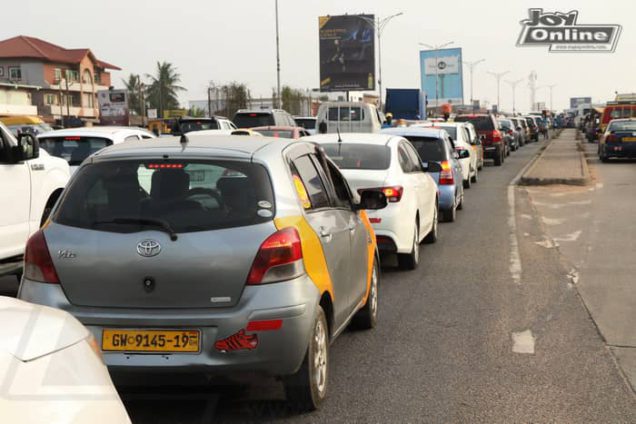One of the major ways governments generate revenue is through taxation. These revenues generated are used to provide essential public services for the benefit of the citizens. The concept of taxation is in two main forms.
These are direct or indirect taxes. The direct form of taxation occurs where the tax revenue is deducted at the source of an earned income like the income tax, corporate tax etc.
The indirect tax however includes examples like the sales tax, service tax, Value Added Tax (VAT), excise tax, tax on petroleum products among many others that are imposed on goods and services and deducted indirectly usually through the use of the affected products or services.
The Finance Minister, Ken Ofori Atta, has hinted of government's intentions on taxing petroleum products should the highly controversial E-levy not be passed by the Parliament. The move by the Minister will be a regressive form of taxation that will overburden the already stranded Ghanaians who struggles to find an appropriate three square meal daily.
Petroleum products are essential to human activities and do not have any substitute or alternatives that people can fall on in instances where they become economically difficult to purchase and use. The petroleum demand is inelastic hence not really responsive to prices changed because it has no alternative.
Therefore, for a government to tax petroleum products indirectly, a product for which demand for which is inelastic, one can only attribute such an action as a last name approach to taxation, taken without recourse to the rising cost of living in the country.
Raising taxes on petroleum products will have rippling effects on the entire economy as the increase of the price of fuel at the various pumps has the potential of affecting the prices of goods and services in the country. This, in the long run would cause transport fares to go up and that also has an indirect way of raising the cost of living.
The already overburdened Ghanaian is the one who suffers the most at the expense of the rich. This is because, both the poor and the rich buy the same fuel at the same price (more burden on low-income earners).
This is a direct opposite to the progressive principle of taxation where the rich pay more whiles the poor pay less. A regressive system of taxation like taxing petroleum products will be applied indirectly and is simply a very easy approach to raising revenue. The Ghanaian economy is very responsive to fuel prices as a slight adjustment upwards affects the prices of almost all other goods and services.
The Ghanaian citizen is already overburdened because of the continuous increases in the price of fuel that have been influenced by the rise in prices on the international market. Recall can be made of new tax components that were introduced into the Price Build Up (PBU) of a litre of petrol and diesel in 2021 that faced fierce critique from IES and other energy sector analysts.
These new taxes added up to all the 12 tax components in the PUB which include the energy debt recovery lexy, road fund levy, energy fund levy, price stabilization and recovery levy, sanitation and pollution levy, energy sector recovery levy, special petroleum tax, BOST Margin, primary distribution margin, fuel marking margin etc.
All these taxes cumulatively affect the prices of fuel significantly. In the wake of COVID-19 where lives and livelihood have been lost, it will be unfair for the government to tax petroleum products should the e-levy not be passed.
The government should engage more on alternatives to the e-levy should the e-levy fail to be passed. Alternatives like a tax on properties, a holistic view at our extractive Industry, reducing government expenditure, reviewing the tax exemption laws granted to foreign companies, as well as conscious efforts to fight corruption will provide long-lasting solutions of raising revenues that will be progressive in nature and not overburdened the poor Ghanaian.
*****
The writer is a Research and Policy Analyst with the Institute for Energy Security, IES
Latest Stories
-
Woman dies after being set on fire on NYC subway
14 minutes -
Elon Musk’s curious fixation with Britain
19 minutes -
EBID wins the Africa Sustainability Award
2 hours -
Expansion Drive: Takoradi Technical University increases faculties
6 hours -
SHS heads demand payment of outstanding funds before reopening of schools
7 hours -
We thank God for the 2024 general elections – Akufo-Addo
7 hours -
Coconut Grove Beach Resort marks 30 years of excellence with memorable 9 lessons & carols service
8 hours -
WAFU B U-17 Girls’ Cup: Black Maidens beat Nigeria on penalties to win inaugral tournament
8 hours -
Real Madrid beat Sevilla to keep pressure on leaders Atletico
9 hours -
Liverpool put six past Spurs to go four points clear
9 hours -
Manchester United lose 3-0 at home to Bournemouth yet again
9 hours -
CHAN 2024Q: ‘It’s still an open game’ – Didi on Ghana’s draw with Nigeria
10 hours -
CHAN 2024Q: Ghana’s Black Galaxies held by Nigeria in first-leg tie
10 hours -
Dr Nduom hopeful defunct GN bank will be restored under Mahama administration
11 hours -
Bridget Bonnie celebrates NDC Victory, champions hope for women and youth
11 hours

